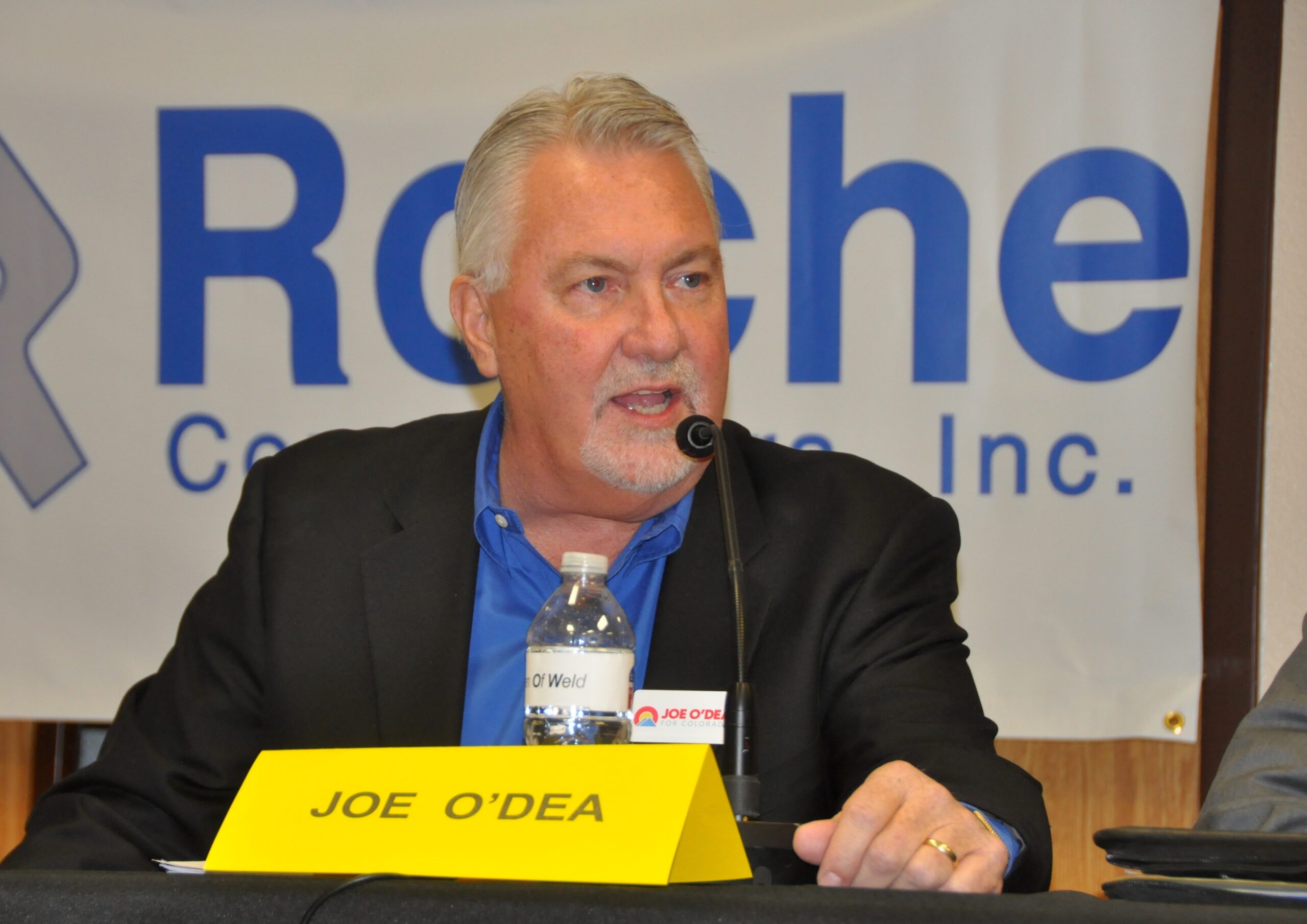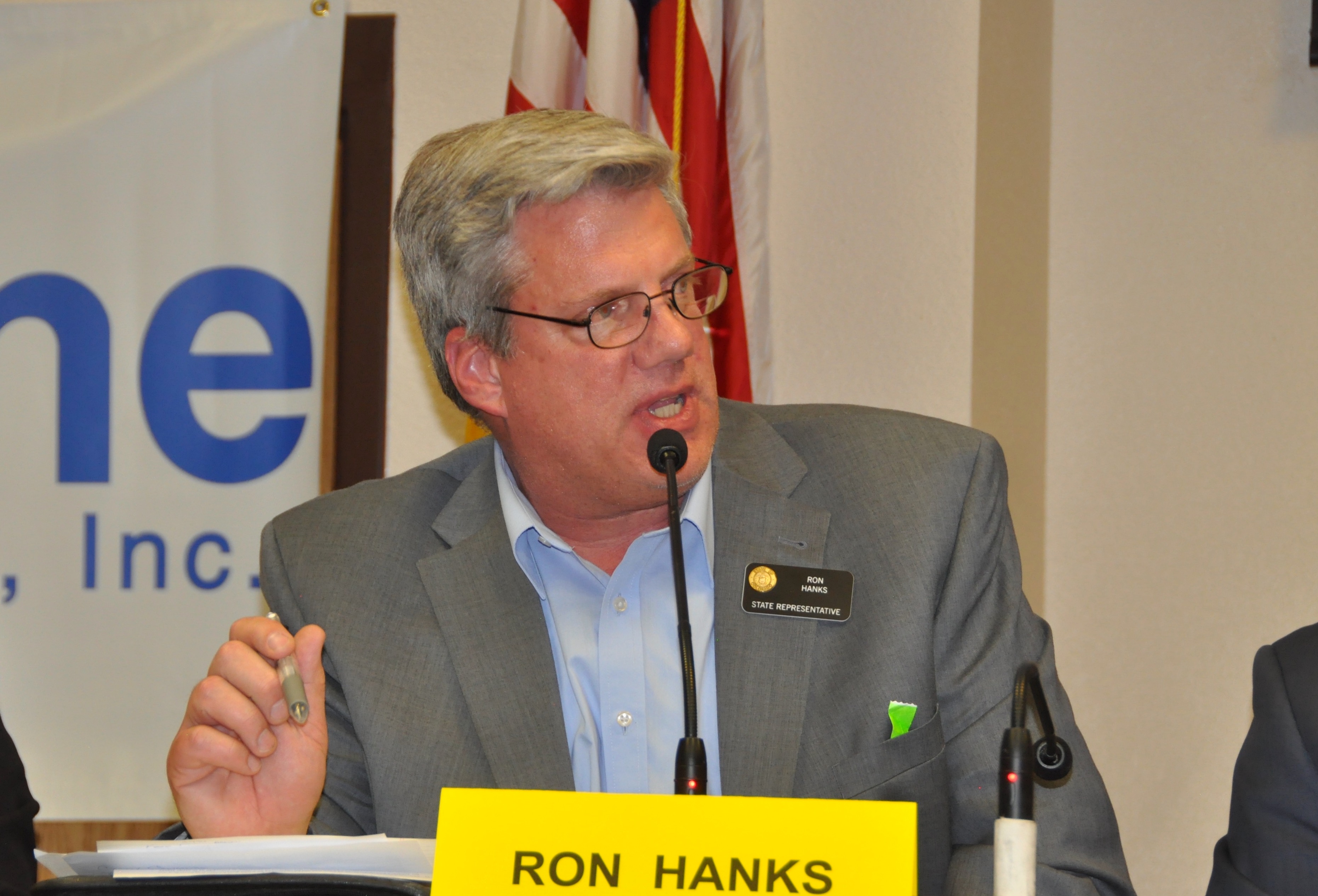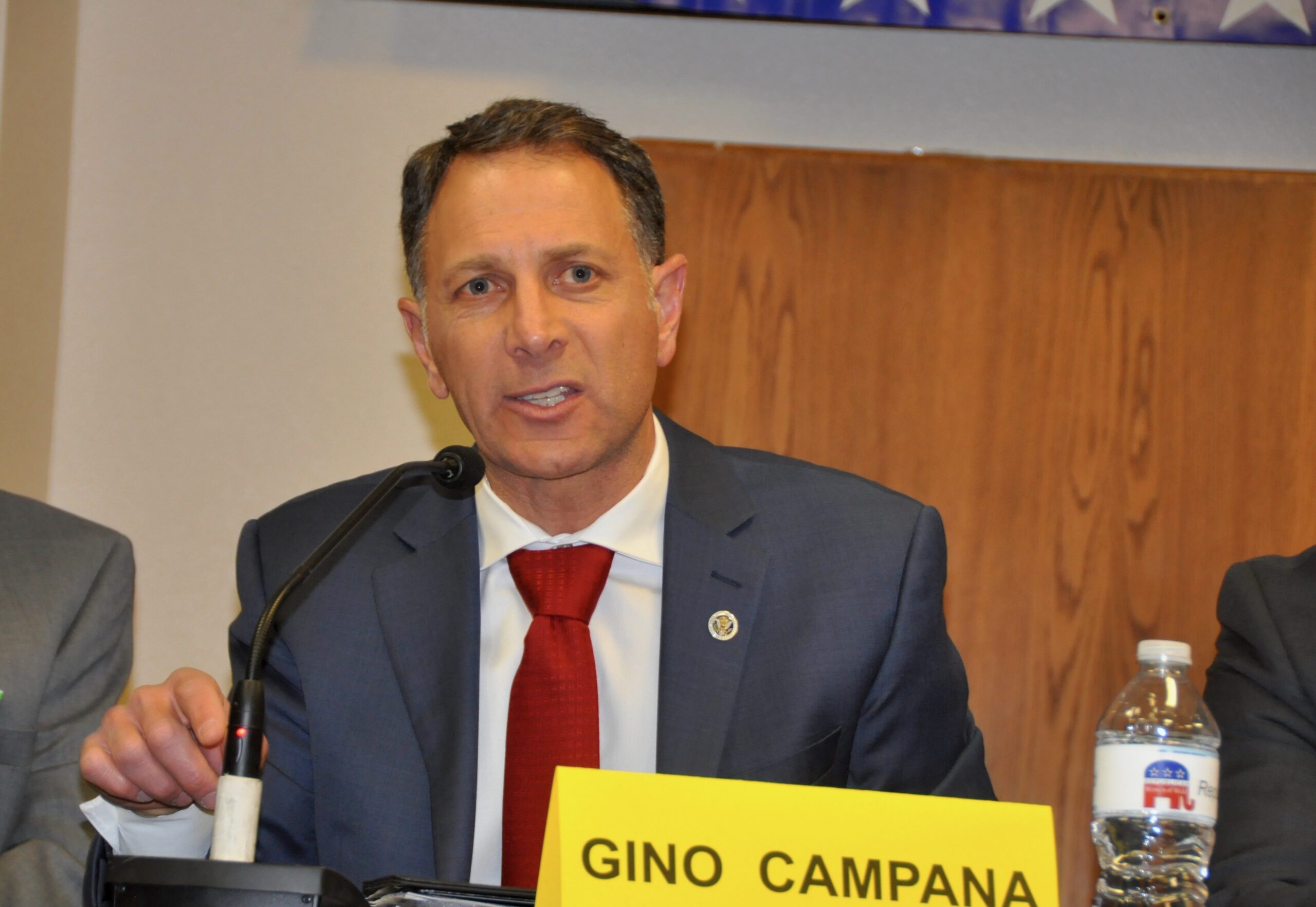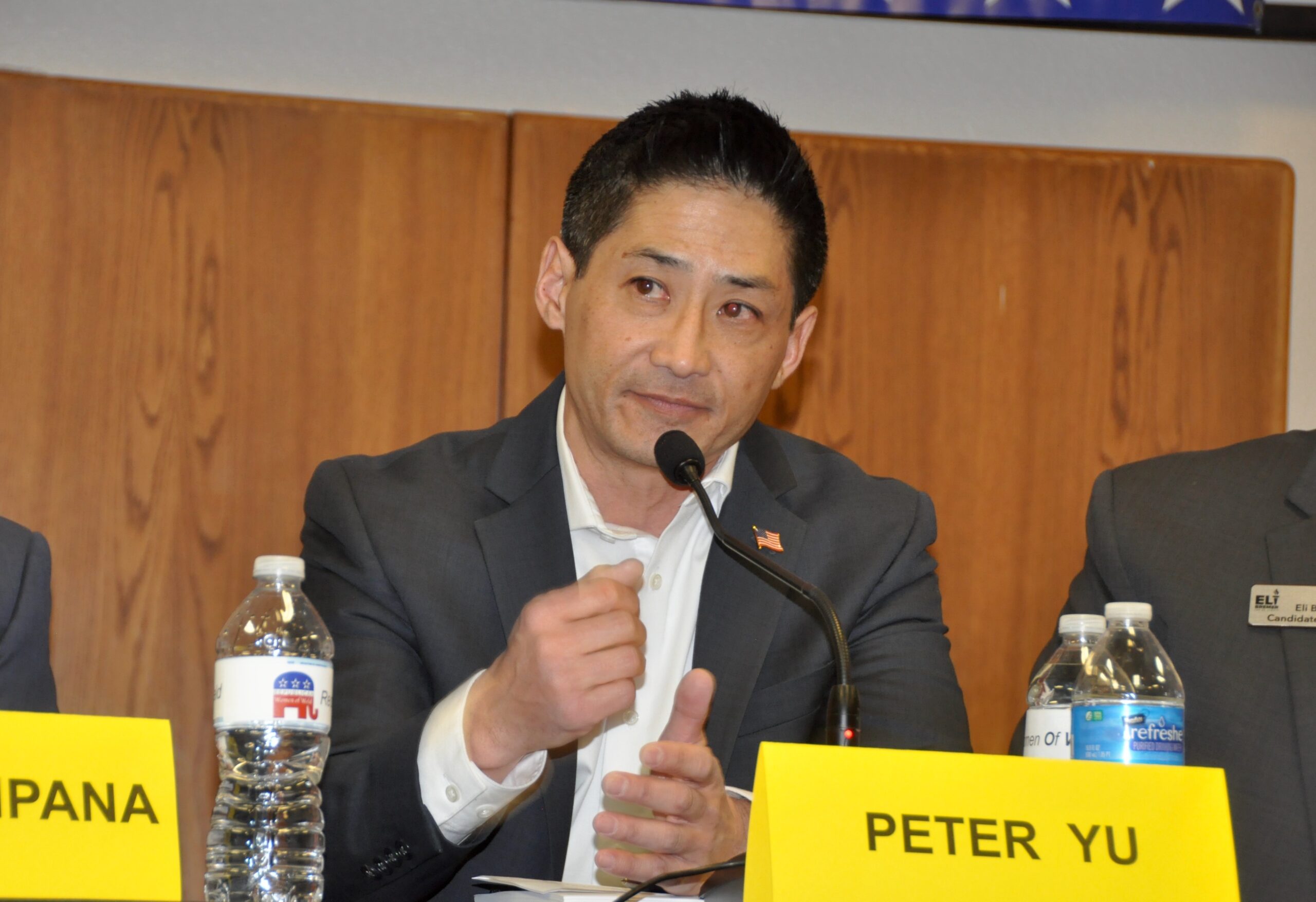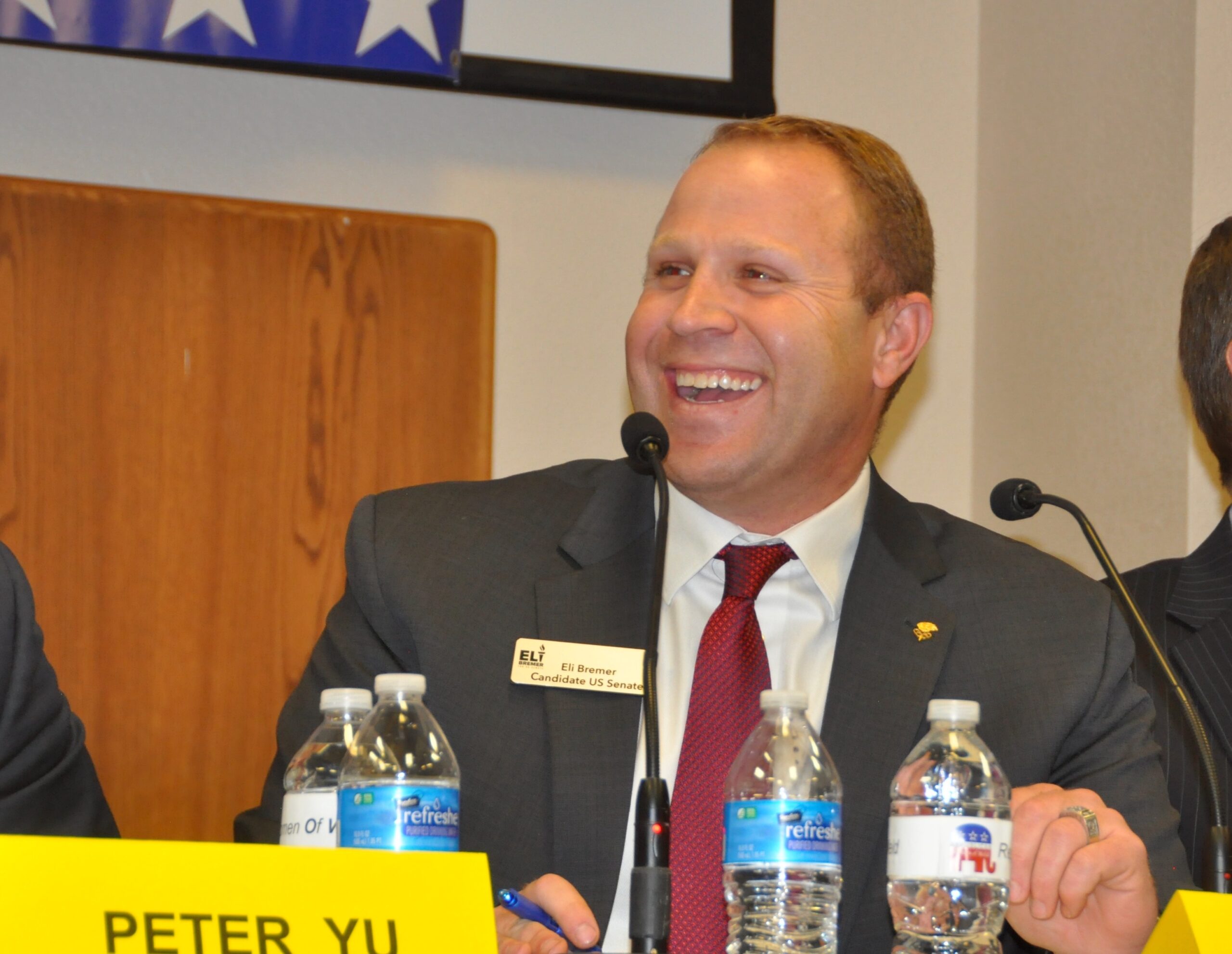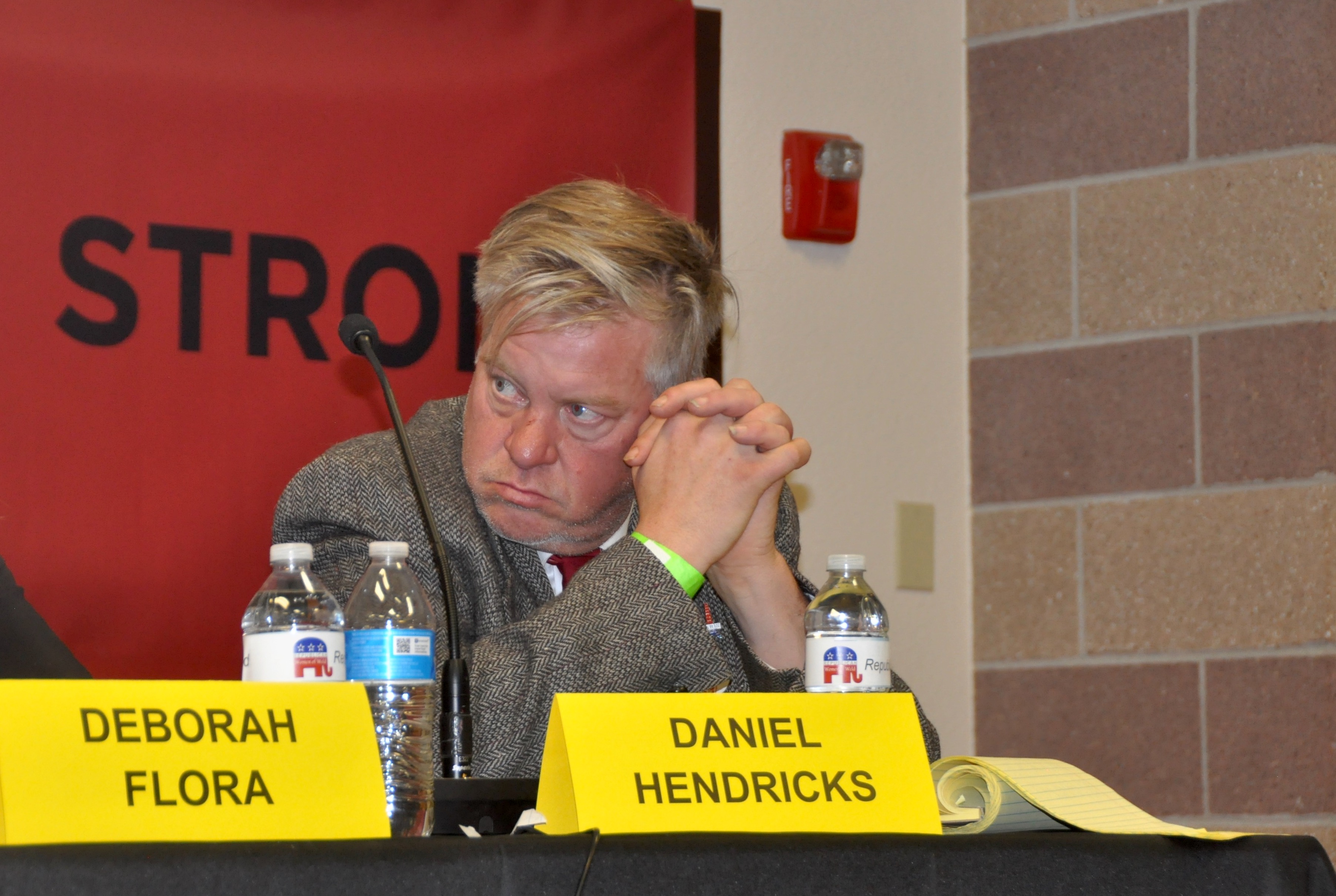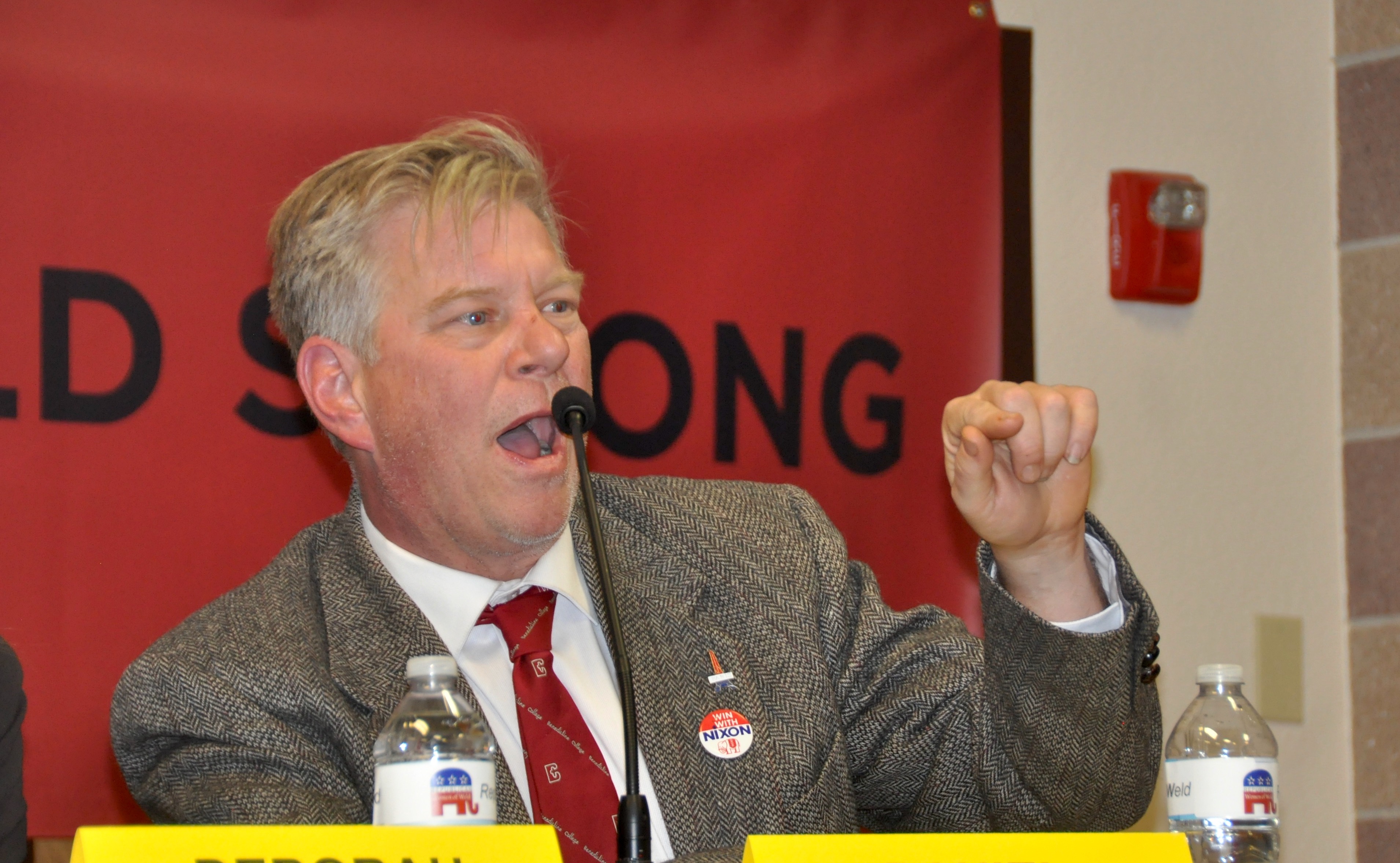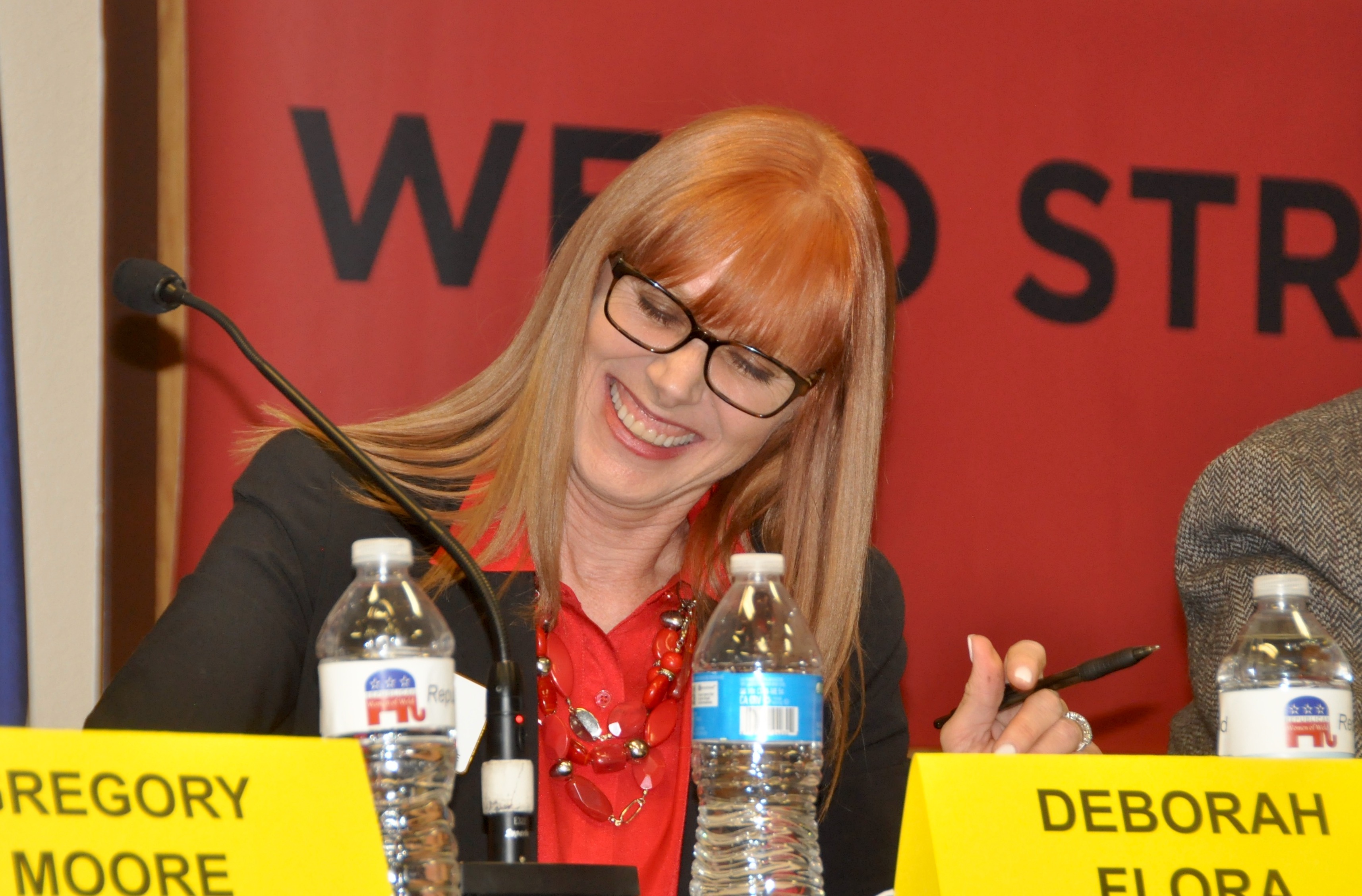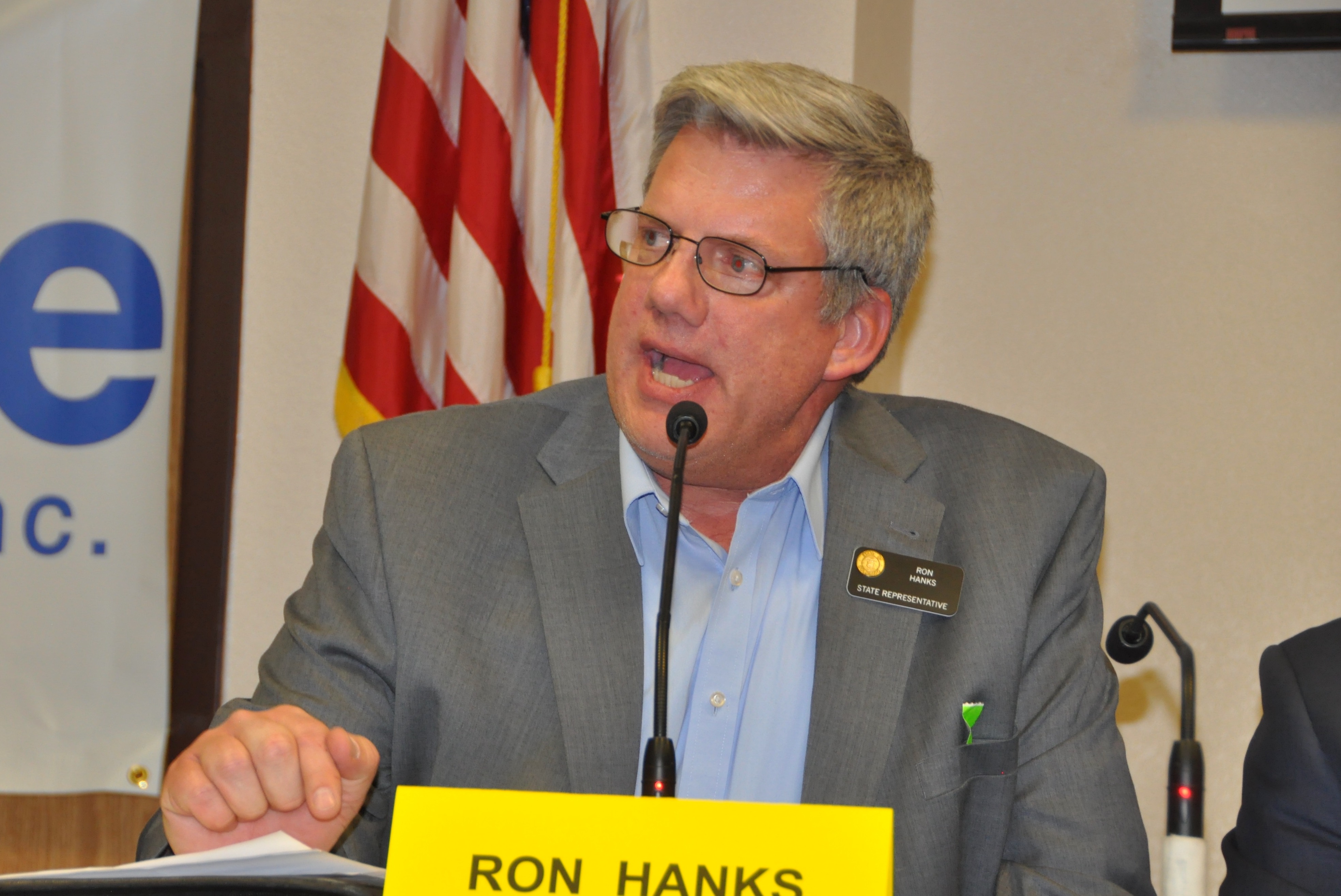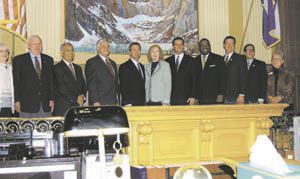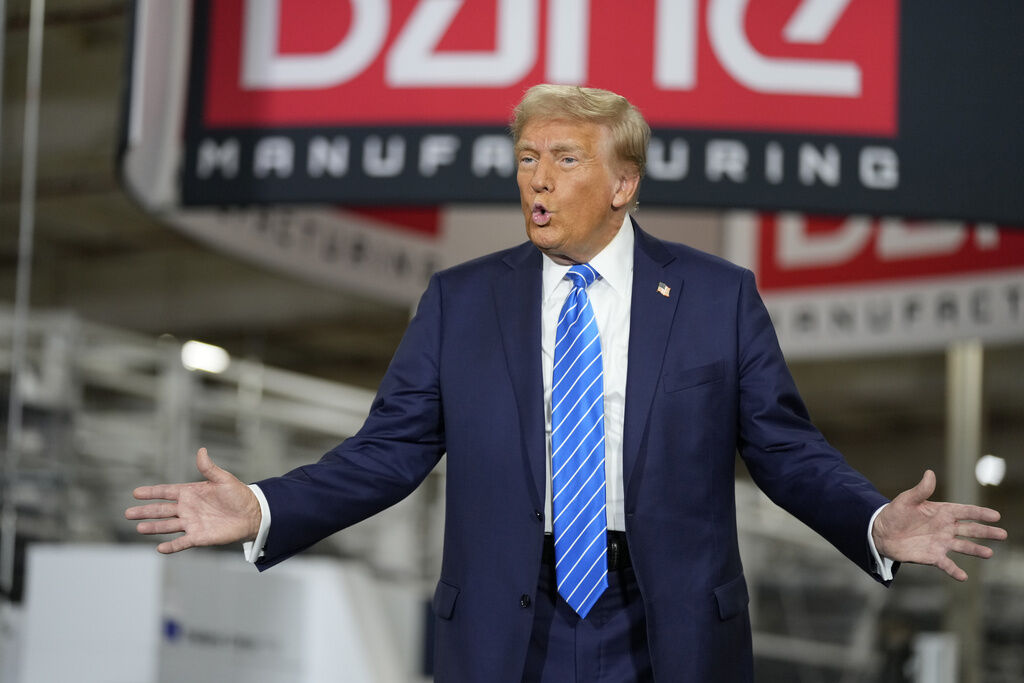COVER STORY | Crowded field of Bennet’s GOP challengers moves toward primary ballot

The outlines of the 2022 race for the Colorado Senate seat held by Democrat Michael Bennet are taking shape as the official start of the nominating process rapidly approaches.
While the crowded field of Bennet challengers took longer than usual to assemble – driven by uncertainty over once-a-decade redistricting as political rhythms begin to resume two years into the pandemic – the eight Republicans and one Democrat hoping to deny the incumbent a third full, six-year term have been raising and spending campaign cash, amassing endorsements and squaring off in a series of candidate forums for long enough to take stock of the contest’s contours.
Within weeks, the two major parties will be in the thick of nominating their candidates to the June 28 primary ballot. With precinct caucuses scheduled for the first week of March – the dates vary by county – and a March 15 deadline to turn in petition signatures, Republicans will soon have a clearer idea who will be taking on Bennet.
In the order they declared their candidacies, the Republicans running are Weld County business consultant and former congressional candidate Peter Yu; 2008 Olympian and former El Paso County GOP chair Eli Bremer; real estate developer and former Larimer County GOP chair Gino Campana; state Rep. Ron Hanks of Cañon City; construction company owner Joe O’Dea; former actress, talk radio host and nonprofit founder Deborah Flora; and Colorado Christian University political science professor Gregory Moore. Pueblo resident Daniel Hendricks threw his hat in the ring in January but has so far done little to demonstrate he’s running an active campaign.
At this point, a few candidates are breaking from the pack, according to the available objective measures, with Campana appearing to be the only candidate leading on multiple fronts.

Wealthy self-funders Campana and O’Dea, who have each chipped in about $500,000 to their campaigns, began the year with the most cash on hand and raised the most in contributions from outside donors.
Campana and Hanks, in turn, have traded wins in a handful of early straw polls and tied for first place with 29% apiece at a straw poll conducted Feb. 15 following a debate sponsored by the Mountain Republicans Club. The other candidates finished with between 6% and 10% of the vote.
The path to the primary
All the Republican candidates except O’Dea are going through the caucus-and-assembly process, which culminates in the GOP’s April 9 state assembly in Colorado Springs, where it’ll take the support of 30% of delegates to win a berth in the primary. County Republican and Democratic parties can schedule precinct caucuses at any time between the first Tuesday and the first Saturday in March in even-numbered, non-presidential years. In presidential years, Colorado holds a presidential primary on a Tuesday in March designated by state officials – in 2020 it was on March 3, Super Tuesday – with precinct caucuses held the following Saturday.
O’Dea is the lone Republican actively circulating petitions for a spot in the primary. To make the ballot, he’ll have to turn in at least 12,000 valid signatures from fellow Republicans, with at least 1,500 from each of the state’s eight congressional districts. The cost of petitioning into a statewide primary in Colorado this year is in the neighborhood of $500,000 for a U.S. Senate campaign, political consultants tell Colorado Politics, with the pandemic-fueled labor shortage driving the per-signature prices charged by firms to new highs.

Only three of the candidates have run for office before mounting their Senate bids: Hanks, a first-term state lawmaker who lost a campaign for a California congressional seat in 2010; Yu, who lost the 2nd Congressional District race in 2018; and, Campana, who served on the Fort Collins City Council.
The GOP primary field has fluctuated a bit since late December, when the first two Republicans to announce Senate candidacies withdrew and switched to other races: West Point graduate and former oil and gas executive Erik Aadland joined the growing field of Republican candidates in the open, Jefferson County-based 7th Congressional District, and Army veteran and nonprofit executive Juli Henry of Colorado Springs jumped into the primary in El Paso County’s House District 21.
Their slots were quickly filled by political novices Moore and Hendricks, leaving the official Republican primary line-up at eight candidates.
With just one candidate seeking the ballot by petition and six planning to go through assembly – plus whatever route Hendricks eventually takes – the June primary could feature as few as two or as many as four Republicans, since there’s a good chance O’Dea will qualify, but it’s mathematically impossible for more than three candidates to emerge from the state assembly. More likely, political veterans say, two candidates could clear the delegate threshold with the other four dividing up the remaining votes.
Barring a miracle, Bennet can count on an unimpeded path through the primary and onto the general election ballot, including a stop at the Democrats’ virtual state assembly on April 9.
He’ll join a full slate of fellow Democrats seeking re-election to statewide office: Gov. Jared Polis and his running mate, Lt. Gov. Dianne Primavera; Attorney General Phil Weiser; Secretary of State Jena Griswold; and, State Treasurer Dave Young. They were all first elected in 2018, when Democrats swept up and down Colorado’s ballot, winning across-the-board control of state government for the first time since the 1930s.
Bennet is facing nominal opposition from Elbert County Democrat Karen Breslin, an attorney and university instructor challenging the incumbent from the left. Breslin has been introducing herself to Democrats since last summer and plans to seek support at caucuses, though she’s garnered little attention and has yet to raise or spend enough to trigger a requirement to file a campaign finance report with the Federal Election Commission. She acknowledges her bid is a long-shot but says she wants Democrats to have a choice.
An attorney and former Denver Public Schools superintendent, Bennet was appointed to the Senate in 2009 to fill the term of Democrat Ken Salazar, who stepped down to join the Obama administration as secretary of interior. Bennet was elected to his first full term in 2010 in a squeaker, defeating Republican nominee Ken Buck by 1.7 points, and he won re-election in 2016 by a 5.7-point margin over Republican Darryl Glenn.
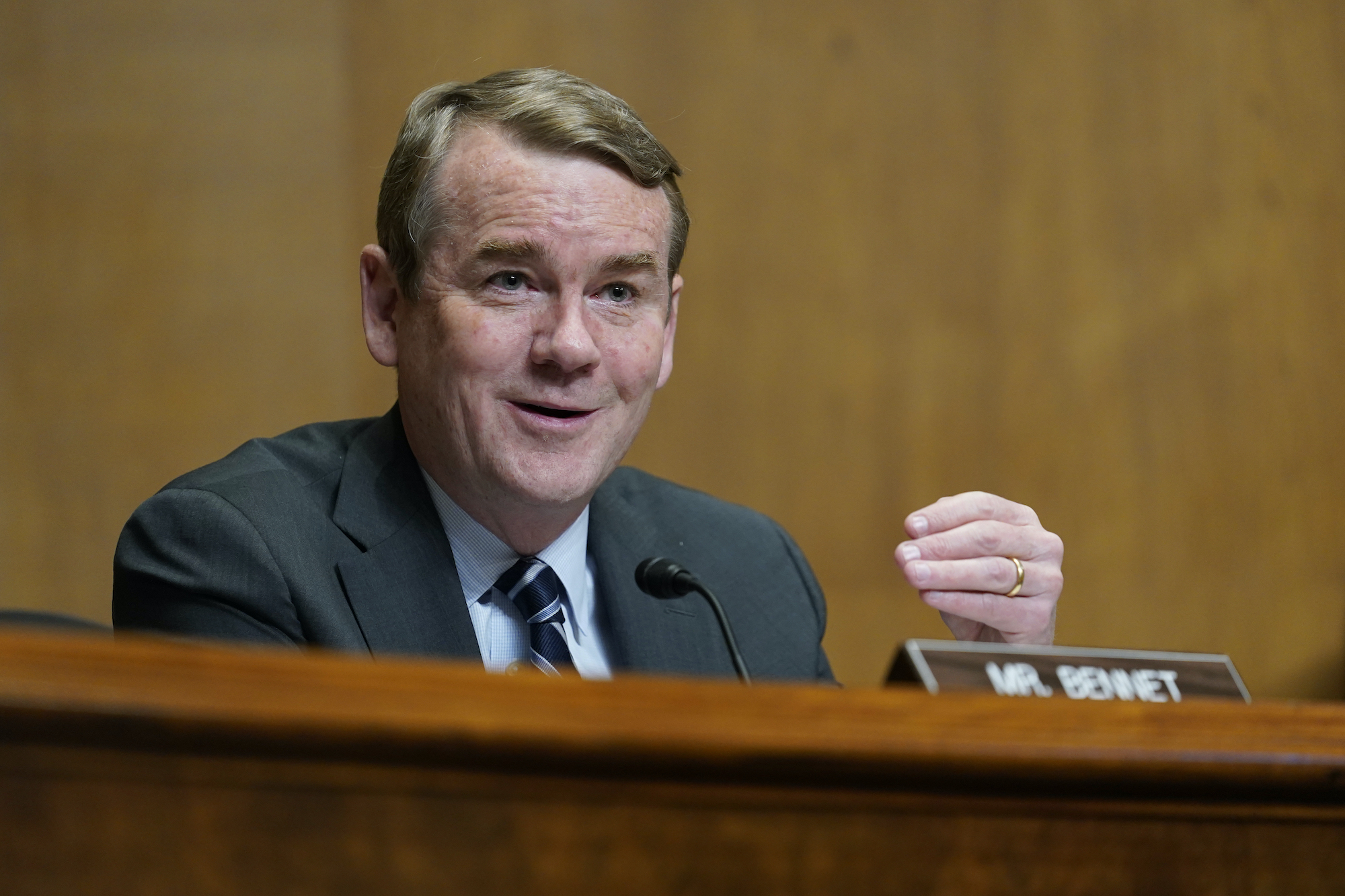
Bennet is the first senator from Colorado to seek a third term since Republican Peter Dominick, who made an unsuccessful attempt in 1974 but lost to Democrat Gary Hart. If elected this fall, Bennet will be the first Colorado senator to win a third term since Republican Gordon Allot was elected to his third and final term in 1966. No Colorado senator has served more than three terms.
Bennet ran a long-shot campaign for president in 2020 and withdrew after a poor showing in the New Hampshire primary. Colorado’s other senator, former Gov. John Hickenlooper, also sought the 2020 Democratic nomination but dropped out months before Bennet did and joined a crowded field of Democrats running against Republican U.S. Sen. Cory Gardner, who lost his bid for re-election last cycle to Hickenlooper by about 9 points.
Unusual for this far into an election year, no independent candidate has yet filed to run for Bennet’s seat, though Colorado’s five officially recognized minor political parties – Libertarians, Greens, the American Constitution Party, the Approval Voting Party and the Unity Party – can nominate their designated candidates straight to the November general election ballot later this spring.
Safe seat?
National election forecasters mostly peg the Colorado Senate seat up for election this year as solidly Democratic and not among the contests in eight or nine battleground states that could determine whether Democrats lose the gavel or keep their effective majority next year in the chamber, which is split 50-50 with Vice President Kamala Harris wielding the tie-breaking vote.
Rating the 34 Senate seats on the ballot this year, the Cook Political Report lists Colorado among 12 safe Democratic-held seats. Cook forecasters rank four seats with Democratic incumbents – New Hampshire, Arizona, Georgia and Nevada – and five seats with Republican incumbents – Florida, Ohio, North Carolina, Pennsylvania and Wisconsin – as competitive, either leaning toward the incumbent party or toss-ups in 2022. Inside Elections and FiveThirtyEight arrive at similar conclusions, ordering the battleground states differently but agreeing that Colorado isn’t one of them. In November, following Republican wins in Virginia’s off-year election, Sabato’s Crystal Ball nudged Colorado’s Senate race from solidly Democratic to likely Democratic, suggesting that if a Republican wave sweeps the country this fall, Bennet could have a race on his hands.
In early February, National Journal’s initial Hotline Senate Power Rankings put Colorado in 10th place in a list of seats most likely to flip this fall, behind Pennsylvania, Nevada, Georgia, Arizona, Wisconsin, New Hampshire, North Carolina, Ohio and Florida, in that order. (Pennsylvania, North Carolina and Ohio are represented by Republicans who aren’t seeking re-election.)
“The last time Republicans benefited from a big wave election in 2014, Colorado was one of the biggest surprise pickups for the party,” National Journal’s Matt Holt, Josh Kraushaar and Kirk A. Bado wrote. “Bennet will need to be wary that he doesn’t suffer the same fate as former Sen. Mark Udall, who spent too much time messaging to his base at the expense of the state’s sizable share of independent voters.”
Citing a poll released earlier this month by Ready Colorado, a conservative-leaning organization that advocates for school choice, that showed Bennet trailing a generic Republican by a single point, the Hotline reporters noted that Bennet stands a chance of facing a competitive race. “But so far,” they added, “none of his Republican challengers have stood out – a dynamic that may change as the primaries get closer.”
State Republicans have been trumpeting President Joe Biden’s sliding approval numbers in Colorado for months and maintain that Bennet is more vulnerable than conventional wisdom holds.
“Senator Bennet and President Biden continue to do nothing to reign in the record high inflation that is burdening families across Colorado,” Colorado GOP chair Kristi Burton Brown said earlier this month when federal data showed the national inflation rate reaching 7.5% on an annual basis, a 40-year high.

“This inflation, which is the highest we’ve seen since 1982, has been promulgated by trillions in reckless spending from the Biden Administration and fully supported by Michael Bennet and the Colorado Dems,” she continued. “It’s time to elect Republican leaders who care about our economy and who will ensure that families have the money they need to buy groceries, pay their bills, and fill their tanks.”
National polls showing higher enthusiasm among Republican voters than among Democrats and GOP advantages in benchmark generic ballot surveys are also bolstering Republicans’ confidence that Colorado’s Senate seat will be ranked as competitive by the time the election is approaching. Democrats, however, counter that the state’s electorate has shifted markedly to the left in the eight years since a GOP candidate last carried a top-ticket, statewide race in Colorado.
The money race
Since most of the Republican primary candidates didn’t launch their campaigns until October, campaign finance reports covering the year’s final quarter, due on Jan. 31, were the first opportunity to gauge how they are stacking up in one of the few available objective measures of candidate strength before the delegates selection process begins next month.
Unsurprisingly, Bennet, a fundraising powerhouse who has been raising money for his reelection bid since 2017, leads the pack by leaps and bounds. He finished the year with $4.7 million in the bank after raising $2.1 million for the fourth quarter, bringing his total haul since winning his second term to nearly $8.7 million. His campaign is carrying a $375,000 loan left over from his 2010 run.
Bennet is the only incumbent senator running this year who is refusing contributions from corporate political action committees and federal lobbyists, though critics point out he raises plenty of money from corporate executives and didn’t impose the restriction until he’d already raised and spent millions of dollars this cycle.
By fundraising alone, his Republican challengers appear to have roughly settled into three tiers. The well-heeled O’Dea and Campana, who each chipped in more than $500,000 to their campaigns and raised about the same amount, are in the lead, followed by Bremer and Flora in the middle, with Yu and Hanks bringing up the rear. (Late entrants Moore and Hendricks won’t have to file with the FEC until April, after the conclusion of the first quarter at the end of March.)
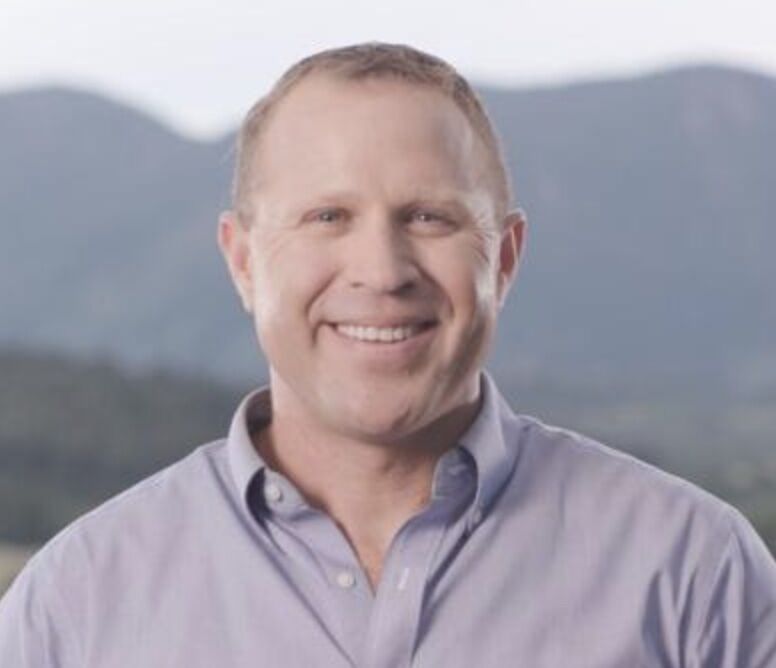
O’Dea and Campana both reported total receipts around $1 million for the final three months of 2021, their first quarter in the race.

O’Dea raised $1.04 million, including $525,000 of his own money, and finished the quarter with $887,000 on hand after spending about $100,000 to air a TV commercial last fall.

Campana reported raising $956,000, including $500,000 he loaned his campaign and $23,000 he contributed to himself. He finished the quarter with $784,000 on hand. Both listed debts to campaign on consultants on their reports.
Bremer, who got in the race last summer, raised $153,000 in the fourth quarter for a total $407,000 through the end of the year and finished with $178,000 in the bank.
Flora raised $304,000 in the fourth quarter, including $102,000 she supplied in loans and donations, and finished the year with $271,000 on hand.
Yu raised $72,000 for the quarter, bringing his total for the year to $204,000, and began 2022 with $157,000 on hand.
Hanks, who has been campaigning on a shoestring, reported $28,000 in receipts for the quarter, including $12,000 he loaned his campaign. He wrapped up the year with $13,000 on hand.
Trump card?
The Republican candidates have been racking up endorsements in recent months, though an endorsement from former President Donald Trump, which could have the biggest impact on the primary – along with less predictable effects on its recipient’s chances in the general election – has yet to land.
Polls show Trump, who lost Colorado twice and has been hinting that he intends to make another bid for the White House in 2024, still carries tremendous sway in the Republican Party, though polling also shows that the former president is viewed negatively by a wide majority of the state’s voters, including many of Colorado’s unaffiliated voters, who make up 45% of the electorate.
Campana, who was appointed by Trump to a federal position in the waning days of the former president’s administration, boasts the most endorsements from Trump alumnae. Kellyanne Conway, who managed Trump’s 2016 campaign and served as a senior aide in the Trump White House, signed on earlier this month as a senior advisor to Campana’s campaign.
Other former Trump administration officials backing Campana include Colorado native and former Interior Secretary David Bernhardt, former acting Department of Homeland Security Secretary Chad Wolf and retired Coast Guard Rear Admiral Peter J. Brown, Trump’s homeland security and counterterrorism advisor. Campana has also been endorsed by former U.S. Rep. Tom Tancredo and former U.S. Rep. Bob Schaffer, who lost the 2008 Senate race to Udall
O’Dea countered earlier this month with an endorsement from Jason Dunn, Colorado’s U.S. attorney during the Trump administration, on the heels of support from the Denver Police Protective Association, which, at 1,400 members, is the largest police union in the state.
Bremer has been endorsed by former U.S. Sen. Ben Nighthorse Campbell and former Trump national security advisor Robert O’Brien, and others.
Flora boasts an endorsement from former Lt. Gov. Jane Norton, who made an unsuccessful bid to challenge Bennet in 2010 but lost in the primary, and former Florida congressman and Texas state GOP chairman Allen West, among others.
Trump has made endorsements in 15 Senate races this cycle – including backing one candidate who has since withdrawn – and recently claimed in a statement that his endorsement “is much stronger today than it was even prior to the 2020 Election Scam.”
Added Trump: “I am almost unblemished in the victory count, and it is considered by the real pollsters to be the strongest endorsement in U.S. political history.”
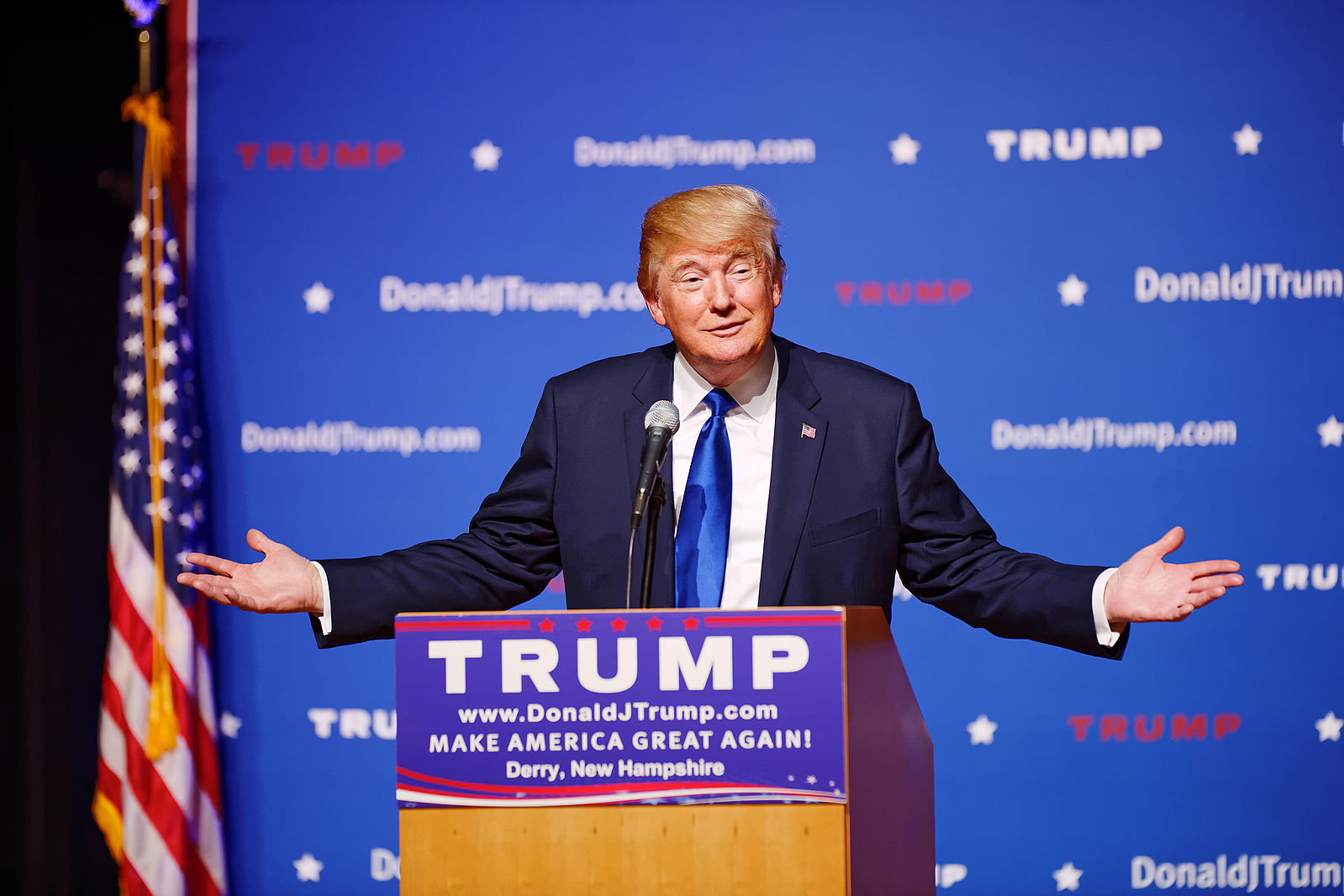
His record backing winners in Colorado, though, is more mixed. The lone Colorado candidate Trump endorsed in 2018 – gubernatorial nominee Walker Stapleton – lost to Polis, and the only winners the former president backed in Colorado last cycle were U.S. Reps. Ken Buck and Lauren Boebert, though he only endorsed Boebert after after she defeated the Republican incumbent Trump had earlier endorsed in the congressional primary.
This cycle, Trump has again endorsed Boebert but has yet to weigh in on any other races in the state.

